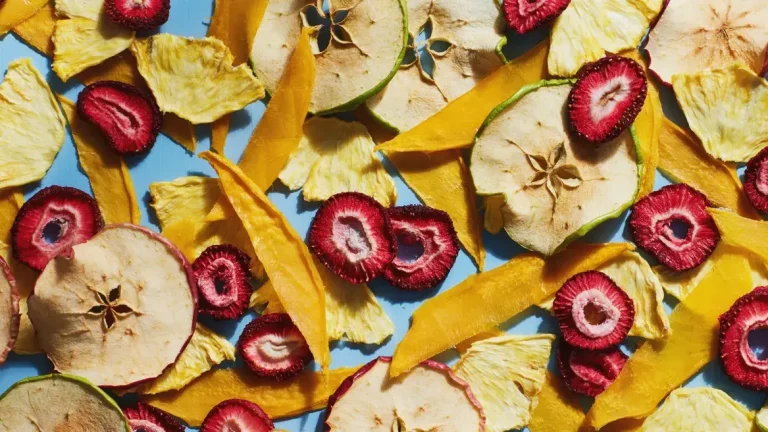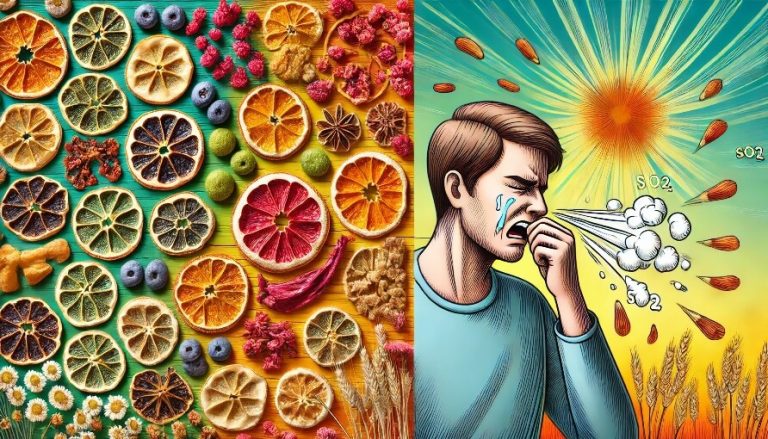All About SO2: The Good, The Bad, and The Natural

Table of Contents
Introduction
Sulfur dioxide (SO2) is a widely used preservative in the food industry, notably in dried fruits. It helps maintain color vibrancy and extends shelf life. Yet, as health awareness grows and consumers increasingly prefer products with fewer chemicals, understanding the role of SO2 and considering natural alternatives is becoming increasingly important. This article explores both the advantages and disadvantages of using SO2 and highlights promising natural substitutes.
The Role of SO2 in Dried Fruits
Sulfur dioxide serves as an antioxidant and preservative in dried fruits, preventing oxidative color deterioration and microbial growth. This preservation is crucial for maintaining the aesthetic and edibility of colorful dried fruits like apricots, prunes, and raisins.

The Benefits of Using SO2:
- Color Preservation: SO2 preserves the bright colors of dried fruits, making them more visually appealing.
- Extended Shelf Life: By inhibiting spoilage and decay, SO2 can significantly prolong the shelf life of dried fruits.
- Prevention of Microbial Growth: It effectively controls the growth of molds and bacteria, ensuring safety in consumption.
The Downsides of SO2:
- Allergies and Sensitivities: Individuals may suffer from allergies or sensitivities to sulfur dioxide, experiencing reactions such as sneezing, throat tightness, or asthma.
- Taste Alteration: High concentrations of SO2 can affect the natural taste of dried fruits.
- Consumer Preferences: There is a growing preference for “clean-label” foods that are free from chemical additives and preservatives.
Natural Alternatives to SO2 in Dried Fruits
The trend towards natural and organic products has led producers to explore and adopt alternative preservation methods that do not rely on SO2:
- Vitamin C (Ascorbic Acid): Acts as a natural antioxidant to minimize color loss and spoilage.
- Freeze Drying: Preserves the natural color and flavor of fruits without the need for chemical preservatives.
- Natural Oils: Certain oils can form a protective barrier against oxygen and microbial exposure.
- Herbs and Spices: Some herbs and spices naturally preserve and can also enhance the flavor and shelf life of dried fruits.
Conclusion
While sulfur dioxide is an effective preservative, the movement towards natural and clean-label products is clear. Embracing natural alternatives not only meets consumer demands but can also improve the quality of dried fruits. As the market evolves, the dried fruit industry must innovate and adjust to accommodate the growing health consciousness of consumers.
Interested in our range of SO2-free dried fruits? Visit our website to explore our products and discover more about the advantages of natural dried fruits!

